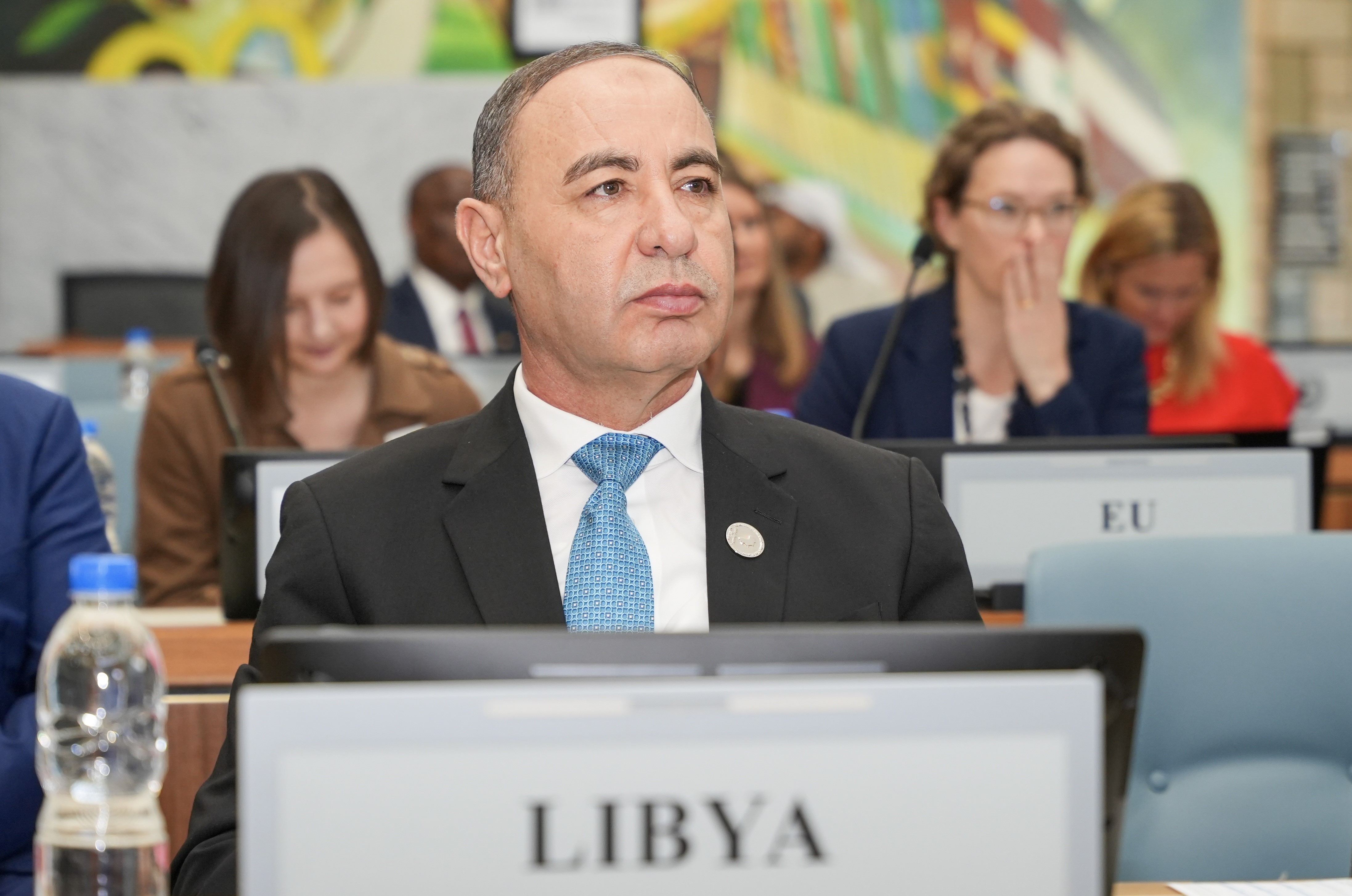The Government of National Unity confirms from Geneva its commitment to human rights based on the Islamic religion, the Constitutional Declaration and national laws
Pulbished on:
Geneva, November 11, 2025 (LANA) - The person in charge of running the Ministry of Foreign Affairs and International Cooperation, Al-Taher Al-Baour, affirmed, on Tuesday, the commitment of the National Government to advance human rights and protect his dignity, based on the teachings of the Islamic religion that guarantee respect for the human being, and what is stipulated in the Interim Constitutional Declaration and national laws.
This came in a speech by Al-Baour, who headed the Libyan delegation concerned with reviewing the national report before the Human Rights Council in Geneva as part of the comprehensive periodic round to review the human rights situation in UN member states.
He stressed that the continuous technical cooperation with the High Commissioner for Human Rights since 2020 has contributed to building national capacities and implementing the Council’s decisions related to Libya, noting that during the previous round in 2019, Libya accepted more than 170 recommendations that included civil, political, social, economic, and cultural rights, in addition to the rights of special groups, and great steps have been implemented for most of these recommendations, while efforts continue to address the remaining challenges.
Al-Baour explained that the Constitutional Declaration of 2011 guarantees human rights and equality before the law, prevents discrimination, and guarantees the independence of the judiciary to protect rights and freedoms, but he pointed out that the country faces great challenges represented by the ongoing political and institutional division, the foreign presence and the proliferation of weapons, which has affected the government’s ability to implement laws related to human rights, including draft laws regulating the work of civil society institutions, combating human trafficking, and transitional justice.
He stressed that the government is making great efforts in vital sectors, as 64 health projects have been implemented within the “Return to Life” plan, including hospitals, health centers and community clinics with a total of 3,524 beds, with spending on the health sector increasing during the year 2024 to more than four billion Libyan dinars.
In the education sector, Al-Baour confirmed that it is guaranteed to all citizens from kindergarten to secondary levels, and includes basic and intermediate education for non-Libyans free of charge, while women’s participation in public life and judicial bodies has been enhanced to exceed 40%.
Regarding the issue of immigration, Al-Baour indicated that Libya is dealing with this issue as a shared international responsibility, as strict measures have been taken to combat smuggling and human trafficking gangs in cooperation with source, transit and destination countries, with a focus on addressing the root causes of this phenomenon by supporting development in the source countries.
The head of the delegation confirmed that the government is determined to end the transitional phase by holding free and fair elections with the participation of all Libyans, noting Libya’s support for the efforts of the United Nations mission to unify institutions and strengthen the political process.
He added that the universal periodic review is carried out with a methodology that is open to criticism and international proposals with the aim of exchanging best practices, achieving reforms, and ensuring human rights for all individuals without exception, stressing Libya’s commitment to constructive dialogue and positive cooperation with the international community to develop capabilities and achieve the desired reform despite the great challenges facing the country.
...(LANA)...




